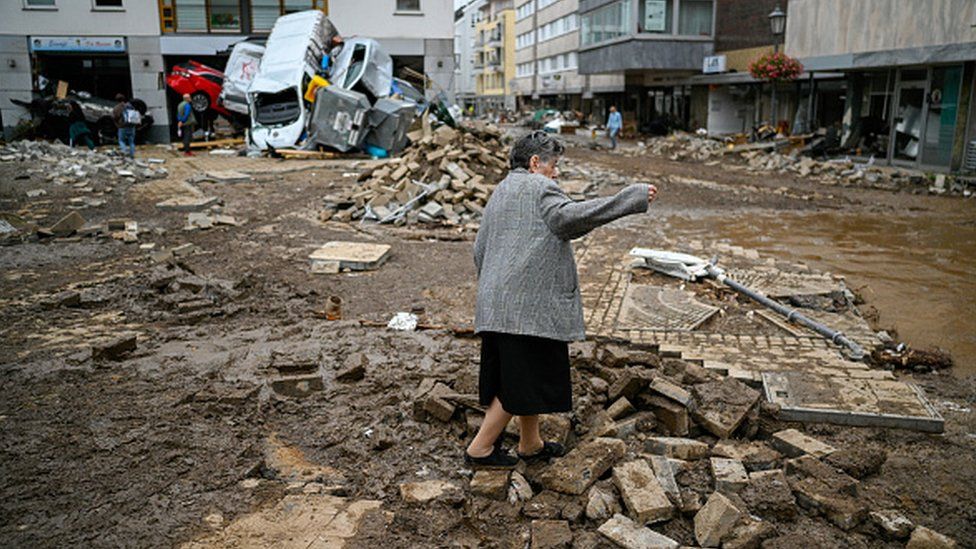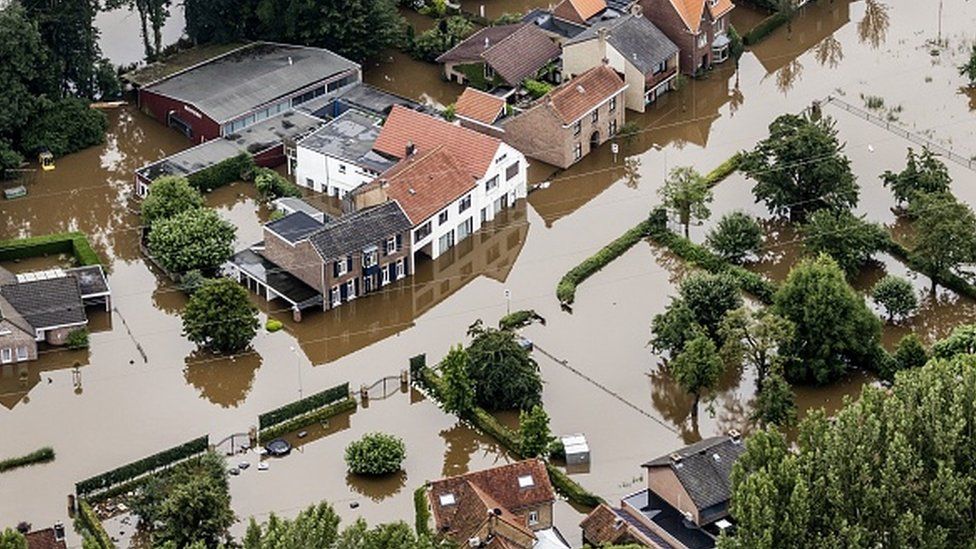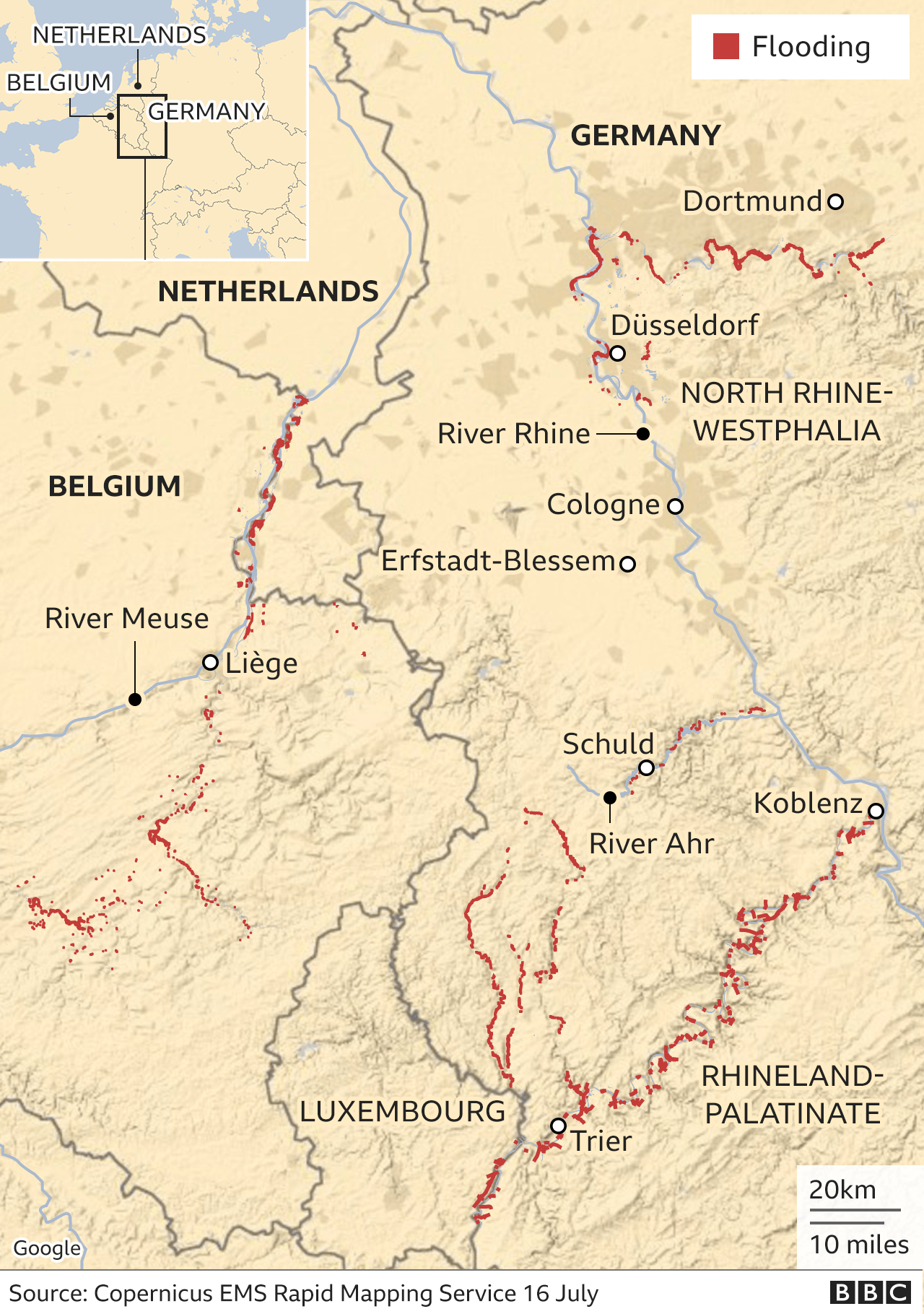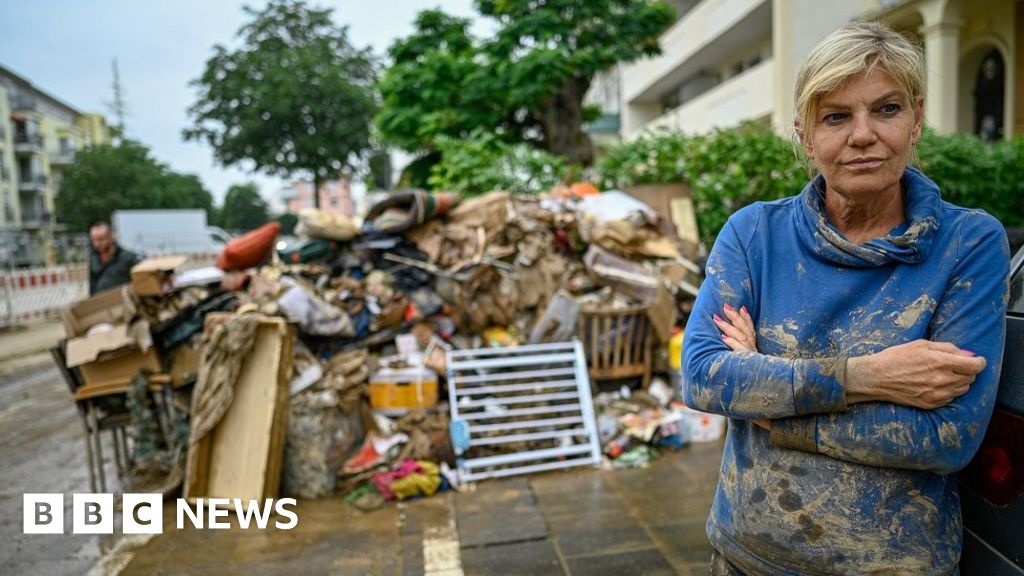Rescue crew have been racing to find survivors of floods that have wreaked havoc across western Europe, killing more than 120 people.
Hundreds are still missing after record rainfall triggered severe floods in Germany and Belgium.
Heavy rains also hit Switzerland, Luxembourg and the Netherlands – where PM Mark Rutte has declared a national disaster in one southern province.
European leaders have blamed the extreme weather on climate change.
Experts say global warming makes torrential rainfall more likely.
The world has already warmed by about 1.2C since the industrial era began.
In Germany, where the death toll stands at over 100, President Frank-Walter Steinmeier said he was “stunned” by the devastation ahead of a visit to a flood-hit region on Saturday.
“Whole places are scarred by the disaster,” Mr Steinmeier said at a news conference. “Many people have lost what they have built all their lives.”
Fears grow for missing
Rescue teams in Germany were hampered by difficult conditions on Friday, leaving relatives of the missing waiting anxiously for news.
Phone networks were down, roads were badly damaged, and more than 100,000 homes were without power.
The states of North Rhine-Westphalia, Rhineland-Palatinate and Saarland have been the worst affected by the rainfall.

In Rhineland-Palatinate’s district of Ahrweiler, officials had said about 1,300 people were missing on Friday – but added that the figure was “decreasing every hour”.
A resident of the Ahrweiler village of Schuld told AFP news agency that cars had been washed away and houses knocked down in scenes he likened to a “war zone”.
Roger Lewentz, the interior minister for Rhineland-Palatinate, told local media the death toll would probably rise. “When you haven’t heard from people for such a long time… you have to fear the worst,” he said.
Chronicle of a disaster foretold

Scientists have been predicting for years that summer rainfall and heatwaves would become more intense due to human-induced climate change.
Hannah Cloke, Professor of Hydrology at the University of Reading, said: “The deaths and destruction across Europe as a result of flooding is a tragedy that should have been avoided.
“The fact that other parts of the northern hemisphere are currently suffering record-breaking heatwaves and fires should serve as a reminder of just how much more dangerous our weather could become in an ever-warmer world.”
Scientists say governments must both cut the CO2 emissions that are fuelling extreme events, AND prepare for more extreme weather.
Yet in the UK – hit by severe flooding on Monday – the government’s advisory climate change committee recently told ministers the nation was even worse prepared for extreme weather than it was five years ago.
And only this week the UK government told people that they don’t need to reduce flying because technology will solve the emissions problem – a notion that most experts consider a gamble.

In Belgium, the army has been sent to four of the country’s 10 provinces to help with rescue and evacuations. Prime Minister Alexander De Croo declared 20 July a national day of mourning.
He said the floods – which have claimed at least 20 lives in Belgium – could be “the most catastrophic our country has ever seen”.

Rescue workers from France, Italy and Austria were sent to the city of Liege, where residents were evacuated after flash floods.
Meanwhile in the Netherlands, thousands of people fled their homes in Limburg province as rising waters swamped cities and broke through a dyke.
But waters were receding in the southern city of Maastricht and nearby towns, where residents were able to return to their homes on Friday.
Your device may not support this visualisation

In Switzerland, lakes and rivers were also swelling after heavy rainfall. The river running through the Swiss capital Bern burst its banks on Friday.
Lake Lucerne is flooding into the town and people in Basel have been told to keep well away from the River Rhine.

How does climate change cause flooding?
- Global heating causes more water to evaporate, which leads to an increase in the amount of annual rain and snow
- At the same time, a warmer atmosphere means it can hold more moisture – which also increases the intensity of rainfall
- Rather than gently watering plants, this intense rainfall leads to flooding, like we’re seeing in Northern Europe now



